无机膜射流乳化重油的研究毕业论文
2020-04-25 19:46:11
摘 要
ABSTRACT II
第一章 文献综述 1
1.1 引言 1
1.2 乳液制备的主要方式 2
1.3 膜乳化技术 3
1.4 本文研究目的与内容 5
第二章 实验部分 7
2.1 试剂与仪器 7
2.2 润滑油油品测试 8
2.3 机械制乳方法 9
2.4 SiC膜的制备与表征 10
2.5 膜乳化过程 10
2.6 仪器分析与数据处理 11
第三章 结果与讨论 13
3.1 油品粘度随温度、含水量的变化 13
3.2 机械制乳效果 14
3.3 碳化硅膜性能表征 15
3.4 膜乳化过程影响因素 16
第四章 结论 20
致谢 21
参考文献 22
摘要
重油催化裂化反应中重油雾化程度影响着产物分布和转化率,提高原油雾化效果一直是研究热点。机械乳化和膜乳化是提高重油雾化程度的主要方法。膜乳化技术主要采用孔径分布窄的氧化铝、氧化硅(SPG膜)等陶瓷膜,但膜通量较小。本文制备了平均孔径为300 nm的碳化硅陶瓷膜,以润滑油为连续相,水为分散相制备油包水乳液。比较了碳化硅膜乳化和机械乳化制备油包水乳液的效果,考察了加水量和预浸对碳化硅膜制乳效果的影响,采用金相显微镜、激光粒度仪等表征了乳液粒径及分布。实验结果表明,机械乳化制备得到的乳液粒径分布广(分布常数gt;1),液滴不均一;碳化硅膜乳化过程中,乳滴粒径随含水量的增加而增大,平均粒径从3.05 μm增大到3.99 μm;碳化硅膜预浸处理后制得的乳滴粒径减小,分布均匀(分布常数lt;0.8)。油浸处理后的碳化硅膜具有疏水性能,适合制备油包水乳液。关键词:油包水乳液;机械乳化;膜乳化;油浸处理
ABSTRACT
The degree of heavy oil atomization in heavy oil catalytic cracking reaction affects the product distribution and conversion, and improving the atomization effect of crude oil has been a research hotspot. Mechanical emulsification and membrane emulsification are the main methods to improve heavy oil atomization. Membrane emulsification technology mainly uses ceramic membranes with narrow pore size distribution, such as aluminium oxide and silicon oxide (SPG) membranes, but the membrane flux is small.
In this paper, a silicon carbide ceramic membrane with an average pore size of 300 nm was prepared. The oil in water emulsion was prepared by using lubricating oil as the continuous phase and water as dispersing phase. The effect of silicone oil film emulsification and mechanical emulsification on the preparation of oil in water emulsion was compared. The effects of water volume and pre impregnation on the effect of milk production were investigated. The size and distribution of emulsion were characterized by metallographic microscope and laser particle size analyzer. The experimental results show that the emulsion prepared by mechanical emulsification has wide particle size distribution (constant distribution spangt;1) and uneven droplets. During the process of SiC film emulsification, the droplet size increases with the increase of water content, and the average particle size increases from 3.05 μm to 3.99 μm. The size of droplet droplets decreases and distributes uniformly (spanlt;0.8). The silicon carbide film after oil immersion treatment is hydrophobic and suitable for the preparation of oil in water emulsion.
KEYWORDS: W/O emulsion; mechanical emulsification; membrane emulsification; oil immersion treatment
文献综述
- 引言
随着石油工业发展迅猛,原油重质化、劣质化趋势明显[1]。催化裂化作为现代重油轻质化的最重要的过程之一,在提高轻质油产率上具有举足轻重的作用。但是重油具有粘度高、不易于雾化的特点,导致了催化裂化过程的催化剂难以再生以及裂化设备结焦率高等缺陷;而且重油中S、N含量很高,在轻质化中产生的SO2和NOx等有害杂质,限制了催化裂化的进一步推广应用[2]。
提升管反应器是催化裂化的主要设备之一,它包括了预提升段、进料混合段、反应段以及气固分离段[2, 3]。其中反应段是预提升气体夹带催化剂颗粒与重油喷嘴喷射出来的油雾快速反应的场所,进料混合段的油滴雾化效果决定了重油轻质化的反应效率。细密的雾滴在催化裂化反应时具有较高的表面积可以使得轻质化反应进行得更加顺利。
通过改变进料段的直径,设置内构件,改变进料角度[4, 5]等方式可以改善进料混合段油滴的雾化效果,但是这些改良方法在复杂的流体流动下难以建立模型予以指导。乳液微爆方式逐步发展成为提高催化裂化反应效率的主要方法之一。乳液微爆是指W/O油包水型的乳化燃油经过雾化喷嘴进行一次雾化,油滴粒径达到100-200 μm。由于内部的水相汽化温度远低于油,当乳化油受热升温后,水汽化后体积迅速膨胀,增大到原来的3个数量级,使得外包的油相被迅速挤压破碎形成更加细小的液滴,这个过程被称作“二次雾化”。这样的“微爆”过程使得油雾更加细密,油滴比表面积增大,与催化剂颗粒接触更加充分,重油的催化裂化产率有所升高,还可以有效降低结焦率和SO2和NOx排放量。
相关图片展示:
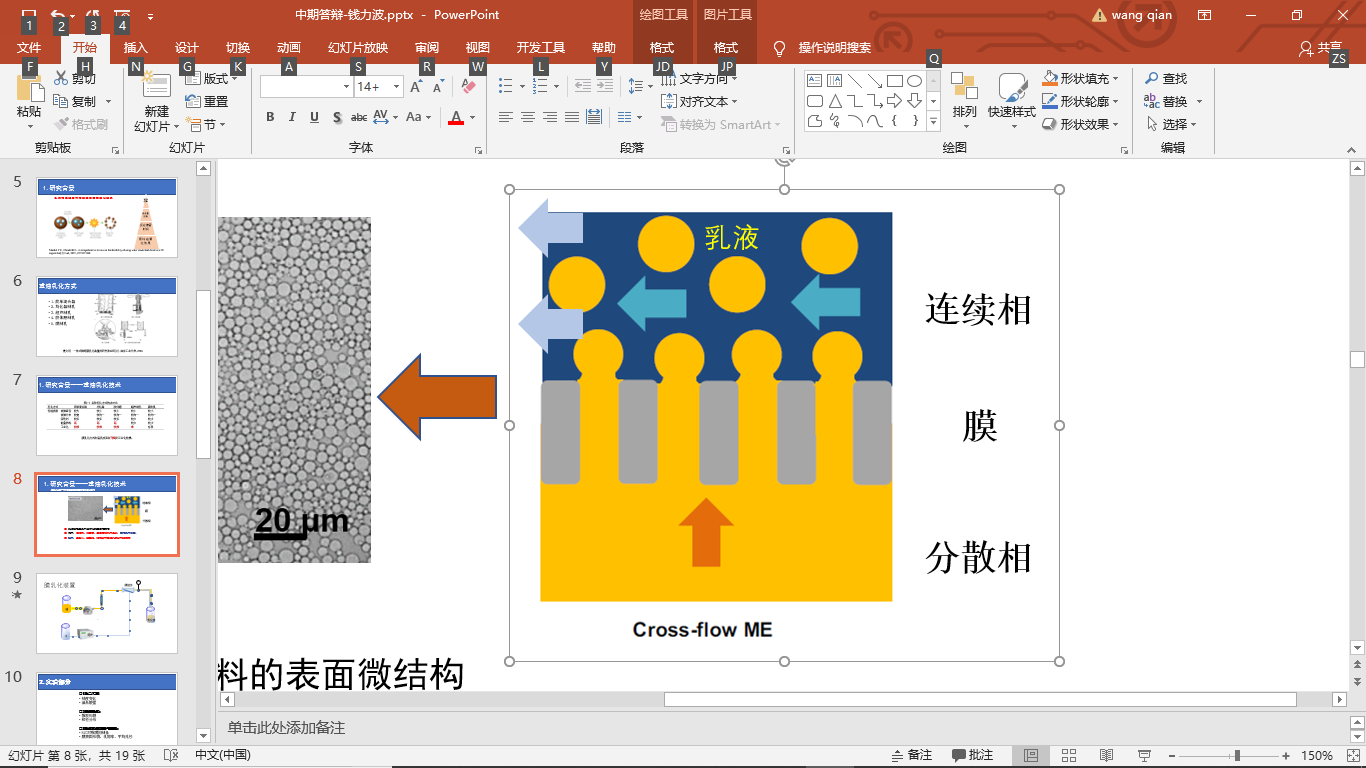
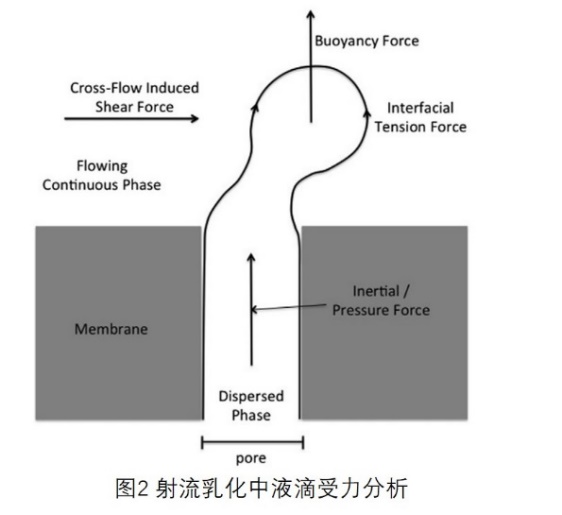
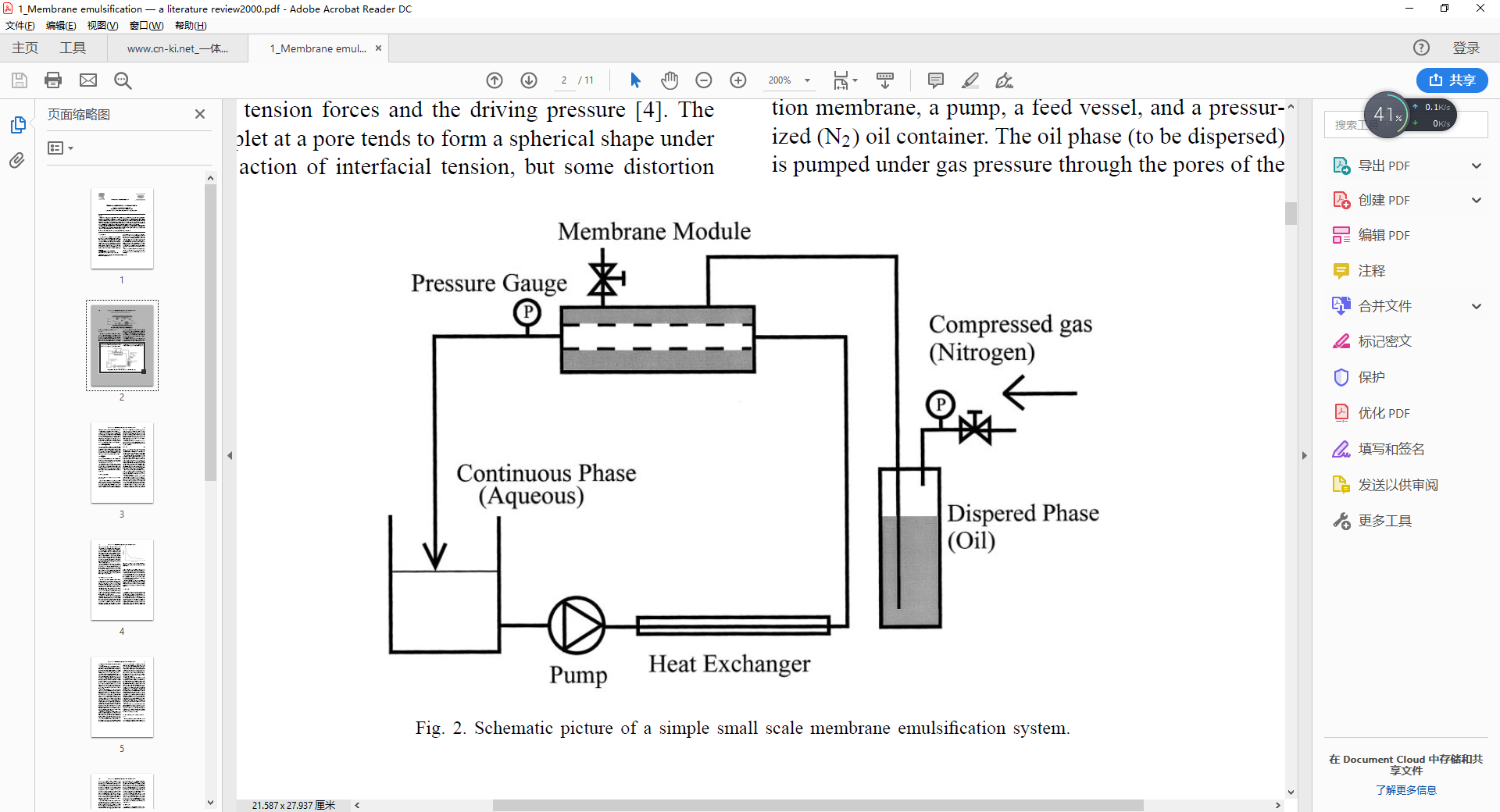
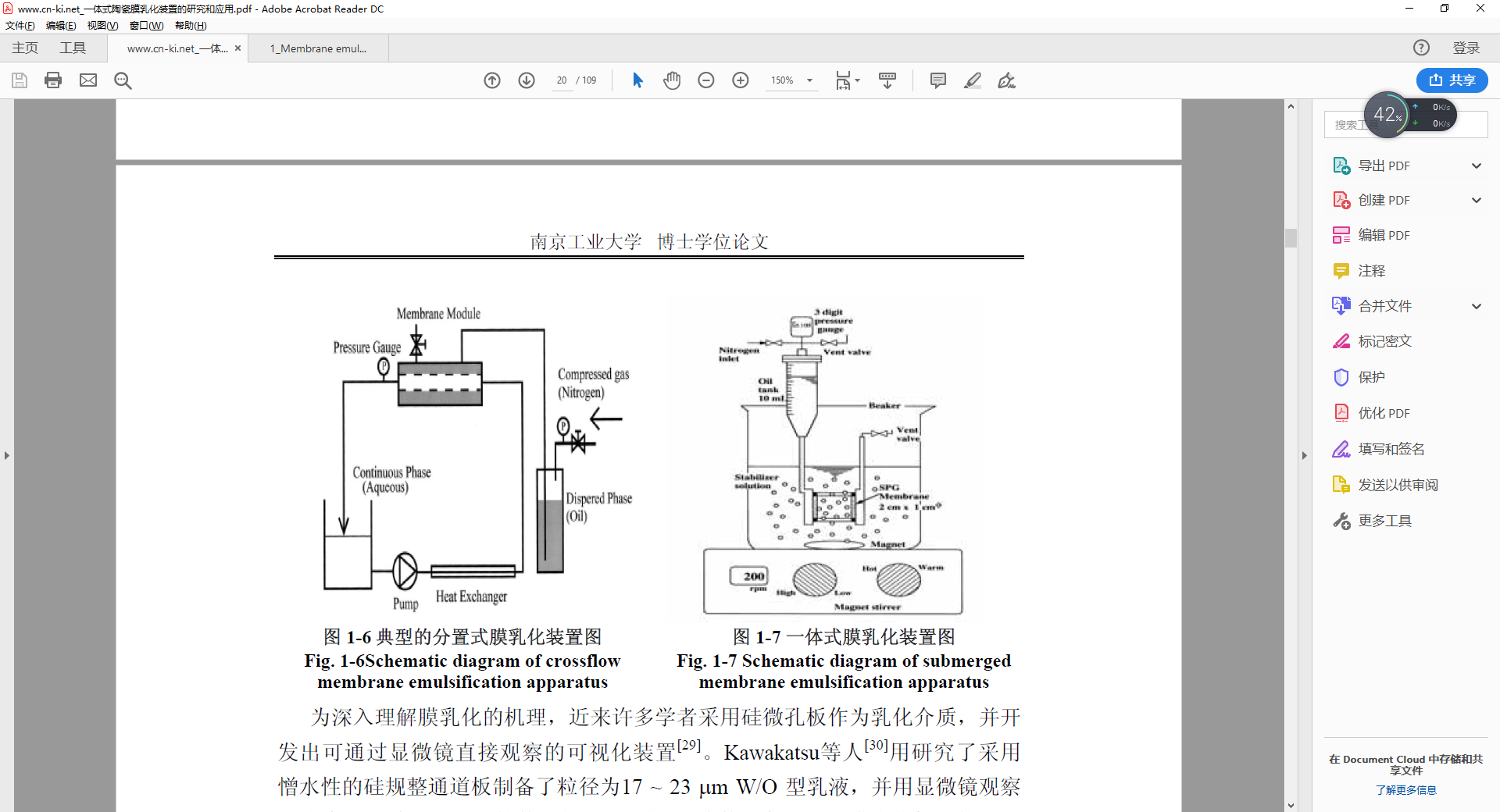
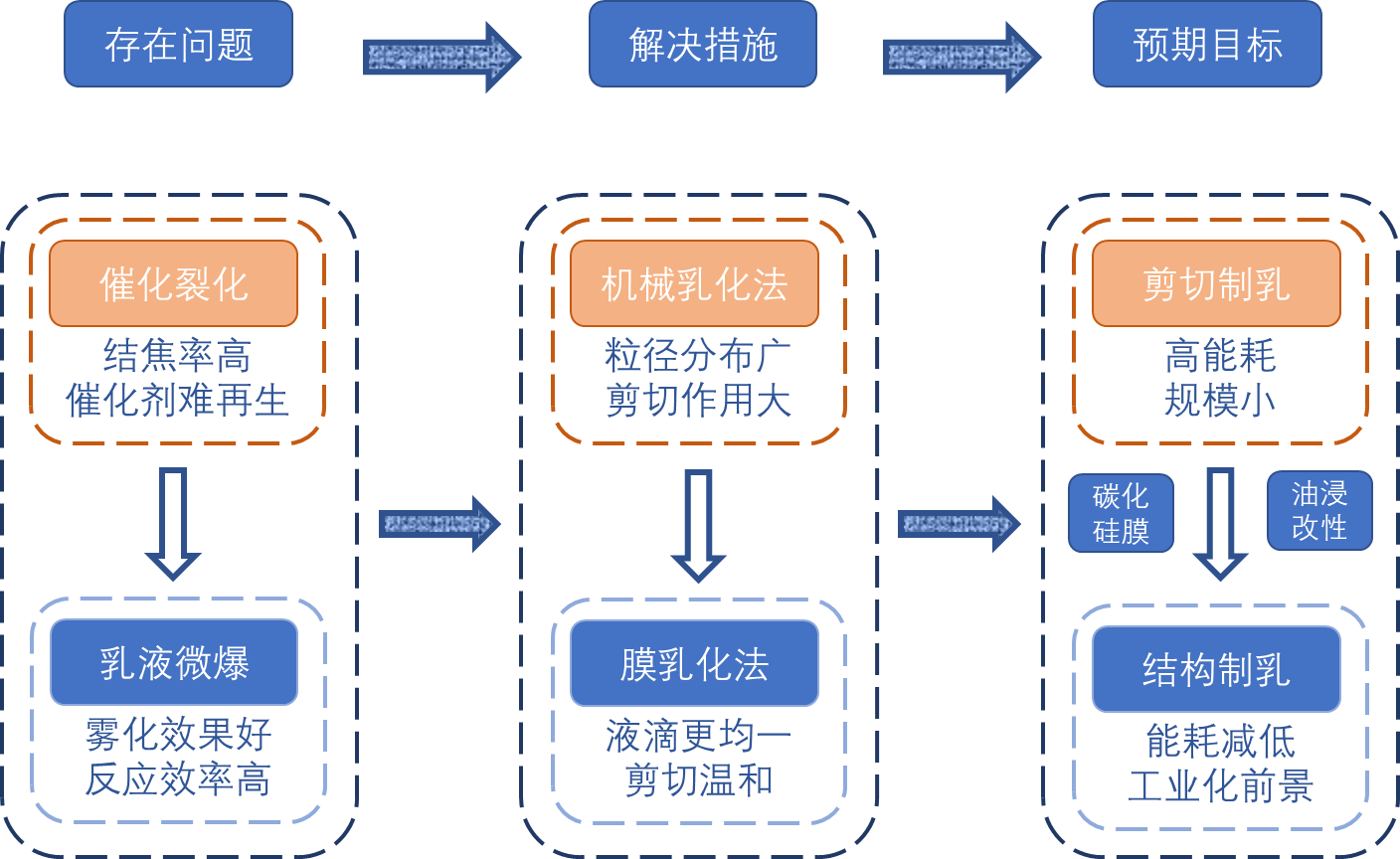
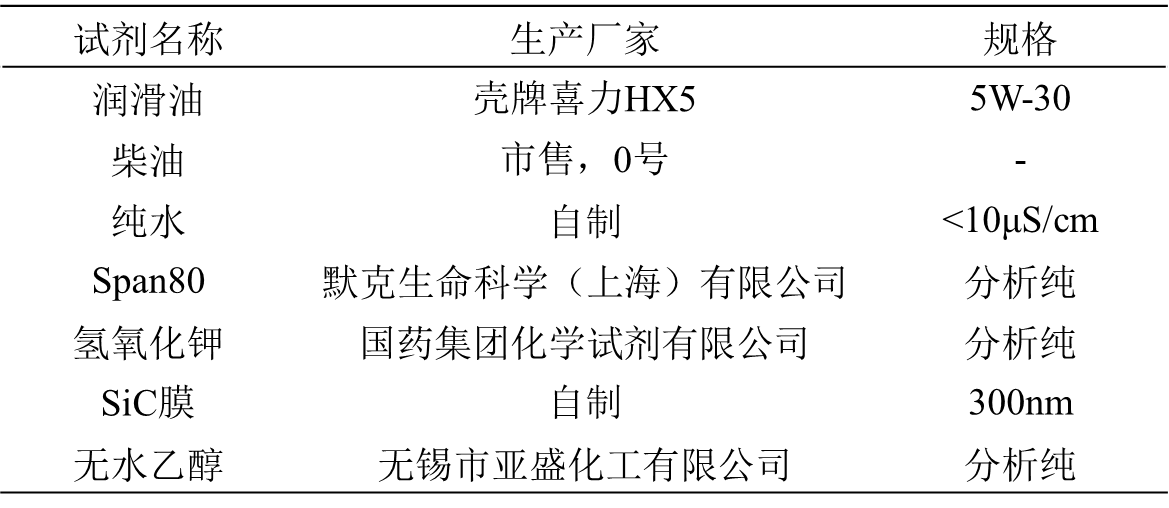

课题毕业论文、开题报告、任务书、外文翻译、程序设计、图纸设计等资料可联系客服协助查找。



